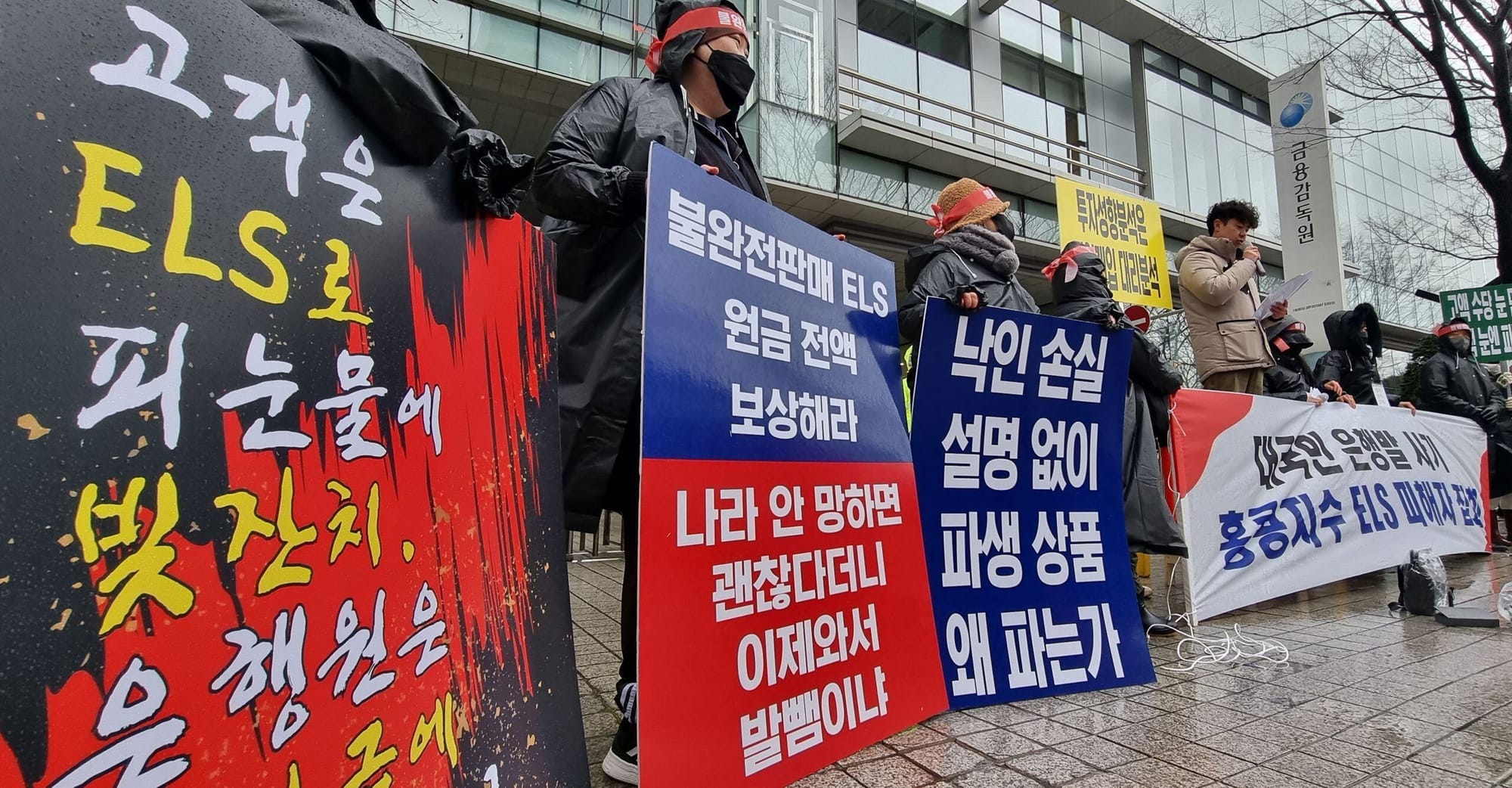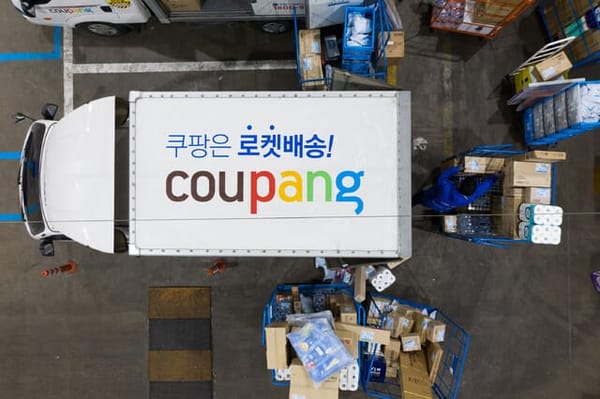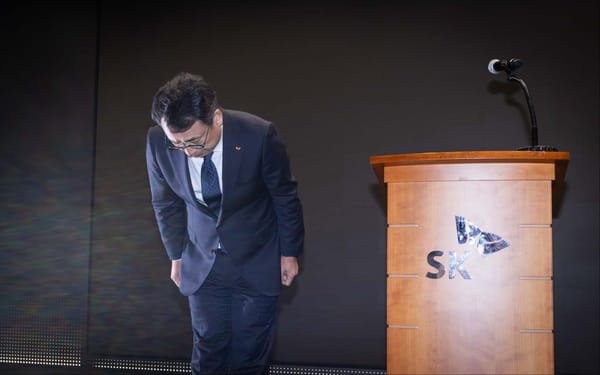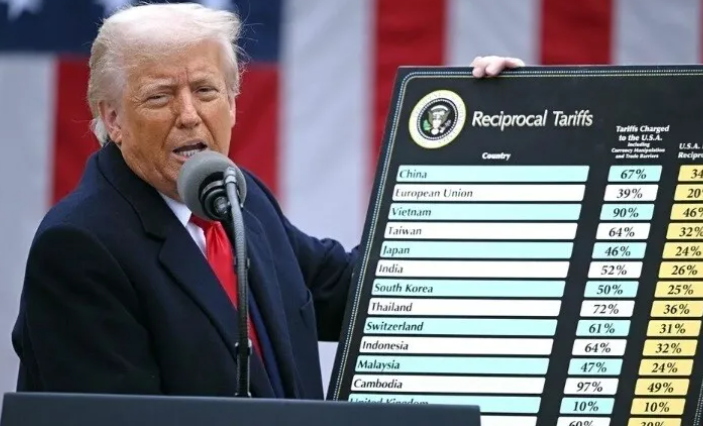Photo: Investors in equity-linked securities protest in front of the Financial Supervisory Service. Credit: Yonhap News.
Construction financing isn’t the only headwind facing the South Korean economy: a class of derivatives, akin to the financial instruments that felled Lehman Brothers in 2008, are also increasingly emerging as threats to the Korean financial system. The derivatives in question are equity-linked securities (ELS) - particularly those linked to Hong Kong’s Hang Seng Index.
Investors in ELS receive a return if the price of the underlying asset stays above a certain level (called the “knock-in level”) until maturity, typically for three years, but take a loss if the price falls below the knock-in level. ELS derivatives are often linked to major international stock indices, such as the S&P 500, Euro Stoxx 50 and the Nikkei 225, and are sold to individual retail investors who wish to generate income at regular intervals.
One of the major indices frequently linked to South Korean ELS derivatives is the Hang Seng Index, the home of major Chinese and Hong Kong corporations including AIA, Bank of China and Lenovo. As the Chinese economy has softened, the Hang Seng index has been dropping precipitously, losing nearly 50% of its value since its peak in early 2021. The ill fortunes of the Hang Seng are now likely to be visited upon South Korean investors who purchased Hang Seng-linked ELS three years ago as the derivatives come due, with effects that will be devastating.
Just two weeks into 2024, South Korean bank investors have already lost KRW 100b (USD 76m) on Hang Seng ELS securities. More than KRW 10t (USD 7.6b) worth of Hang Seng ELS will come due in the first half of 2024, meaning that - unless the Hang Seng Index improves dramatically and rapidly - South Korean investors holding these derivatives collectively face losses of between KRW 4-5t (USD 3b-3.8b). Over 90% of these investors are individuals, and more than 30% are over 65 years old.
As these retail investors began filing complaints, the Financial Supervisory Service 금융감독원 launched investigations into South Korean banks that were major sellers of these derivatives, such as Kookmin Bank 국민은행 and Korea Investment & Securities Co. 한국투자증권, to determine whether they made proper disclosures to the investors. The FSS is also investigating whether the banks pushed these products even as the Hang Seng Index was experiencing greater volatility.








